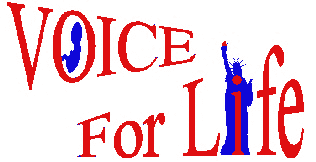

At 19 years of age, Betty was just entering what should have been the best years of her life. She was enjoying a budding romance with her boyfriend, who had been a close friend of hers since childhood. They talked of marriage, but due to China's minimum marriage age, that was impossible for several more years. On the edge of adulthood, she looked with optimism toward her future. Little did she know her whole life was about to fall apart, because of China's coercive abortion policy.
The problems began for Betty (whose Chinese name is Zhou Shiu Yon) in January of 1993. Her sister-in-law was six months pregnant with her second baby. When the Chinese government discovered this "crime," they came to Betty's home, where her brother and sister-in-law usually lived. However, they were hiding from the Chinese government, so the officers arrested Betty instead. She was a hostage for two weeks, until her sister-in-law turned herself in.
The officers handcuffed her sister-in-law and took her to a hospital, where she was forcibly brought to the abortion room. The room was especially designed for situations such as this, including a strategically- placed mirror so that officials could force women to watch as their babies were aborted.
However, the pain Betty's sister-in-law experienced was so extreme that the doctors finally gave her an anesthetic to put her to sleep during the remainder of the abortion.
Not only was Betty's family emotionally devastated by this experience, but they were also faced with a huge fine for disobeying China's policy of one child per family. This devastating experience left an indelible impression on Betty. Little did she know that in just a few short months she would be facing the same persecution.
Betty looked to her boyfriend for solace during this time of suffering. In her vulnerable condition, she gave in to his advances, opening the door to more trauma she was soon to suffer.
In March of 1993, Betty began to feel ill, so she went to her doctor. The doctor said "you're pregnant." Betty's heart sank.
In addition to facing the shame of unwed pregnancy, Betty knew that she was under the minimum age for marriage and childbearing. Her baby, like her sister-in-law's baby, was considered to be "illegal." Nevertheless, she refused the abortion her doctor recommended. In response, the doctor reported her to the government.
In May, Betty was apprehended and brought to the hospital, where she was told that she would be given medicine to kill the baby. Two doctors held her down, forcing her to swallow a pill. Then they left, telling her that they would be back later with a shot to complete the process.
Betty, still determined to save her baby, asked the nurse, who was a friend of her boyfriend, to help her escape. The nurse unlocked the window, and Betty jumped out.
A friend arranged for Betty to board the Golden Dragon, a smuggling ship bound for America. "They won't kill my baby in America," she thought.
On the boat, Betty became very sick. When she lost consciousness for several hours, the captain assumed she was dead. If she had remained unconscious for just 30 more minutes, she would have been thrown overboard!
The trip to America took about a month. By the time the Golden Dragon arrived, Betty was so sick that she needed to be hospitalized.
In a San Diego hospital, she was told that her baby was deformed, and she needed to have her baby taken out, or she would die. At first, she refused, still hoping to save the life of her baby. But eventually she gave in, and her baby was aborted.
After she recovered, she was brought to a San Pedro prison with the rest of the Chinese refugees. In September of 1994, she was moved to the Lerdo Detention Facility near Bakersfield.
She is still imprisoned today, even though a law passed in the fall of 1996 grants asylum to victims of forced abortion and forced sterilization. Ironically, her quest has brought her another kind of freedom: she accepted Christ after she came to America. She is spiritually free in Christ, even while her body continues to be incarcerated.
NOTE: The drug Betty was forced to take in China was probably RU486, which requires one or more follow-up shots to complete the process. This explains why Betty did not miscarry the baby after swallowing the pill, and why she became so sick on the boat.
If you are concerned about Betty and the other Chinese refugees who continue to be incarcerated in America, please contact the following individuals. Keep in mind that you will be told that "we already freed the Chinese refugees." This is only partially true: in late February, the Chinese refugees who came to America on the "Golden Venture" in 1993 were finally freed. However, others who have been in jail just as long and have similar asylum claims, like Betty, were not freed. It is unjust and illogical to base the decision to free these refugees upon what boat they came on rather than upon the sufferings they have experienced.
(List of names obsolete/omitted.)